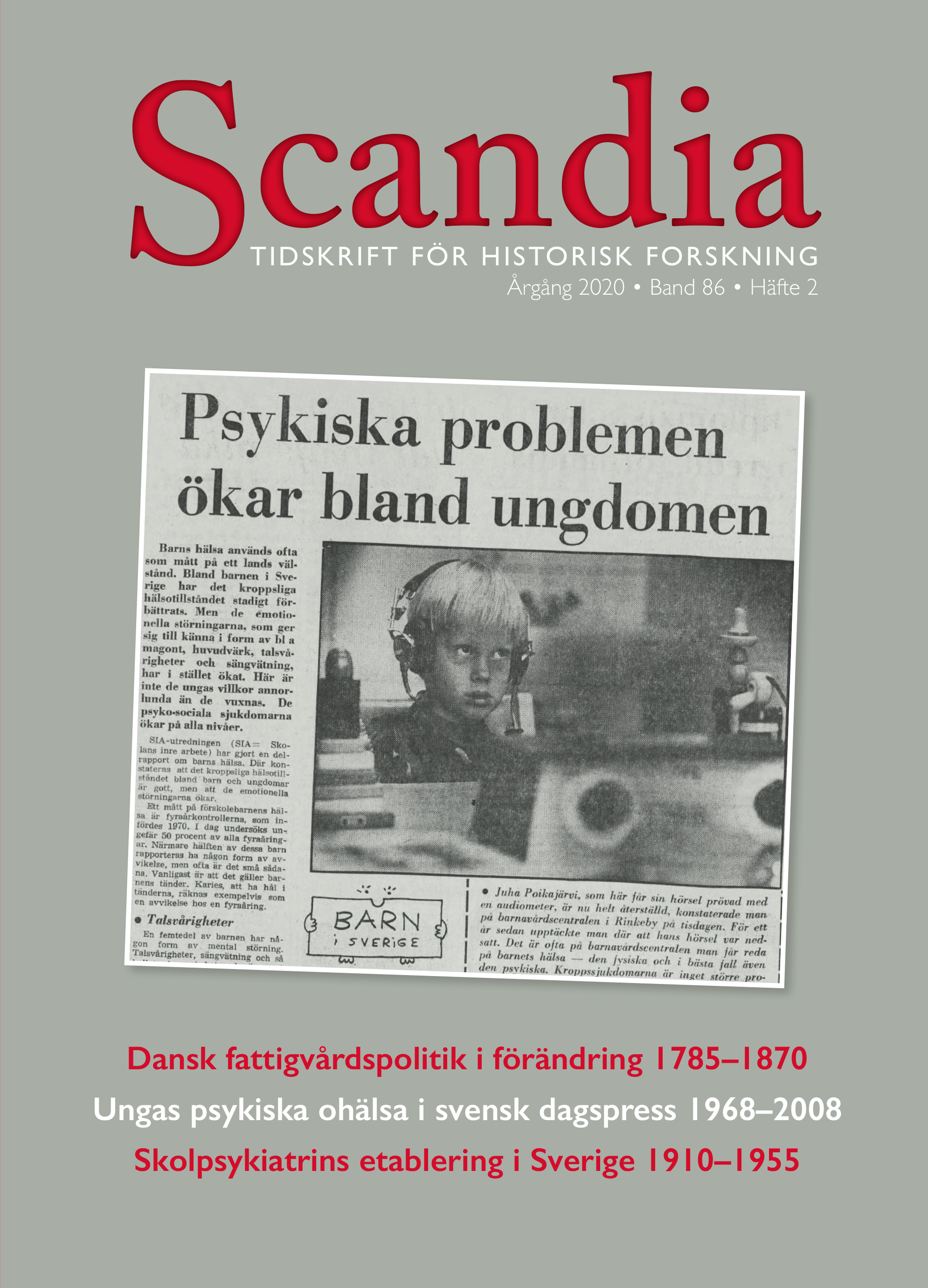De svåruppfostrade barnen
Skolpsykiatrins framväxt och etablering i Sverige 1910–1955
DOI:
https://doi.org/10.47868/scandia.v86i2.22293Nyckelord:
School Psychiatry, Unmanageable Children, Problem Children, Foucault, Biopower, GoverningAbstract
Around the year 1900, there was an emerging scientific interest in man and human behaviour. Among other things, this interest involved a concern about the quality of the population, especially regarding children. A whole scientific movement, the Child Study Movement, emerged in both the United States and Europe, revolving around this interest in children. Different experts were united in their concern about the state of the population of children and developed a variety of models and methods to improve the characteristics and health of children. One category concerned the experts in particular: the misbehaved.
Drawing on a Foucauldian perspective on biopower, this article explores how psychiatry played an important role in sorting and categorizing schoolchildren in the early welfare state during the interwar years. Society demanded new ways of controlling the population, and biopower – which is about administering the population and maximizing vitality – became a central element of this governing. This article is a contribution to the history of biopower, and this topic is discussed with the emergence and establishment of child and school psychiatry during 1910–1955 serving as an example.
In this article, it is argued that the involvement of psychiatrists occurred in three steps: as a part of creating and defining new categories of “problem children” within the school system, due to influence from the mental health movement with the establishment of advisory clinics and, finally, through hospitalization and specialization in the 1940s.
Downloads
Publicerad
Versioner
- 2021-05-31 (2)
- 2020-12-06 (1)






